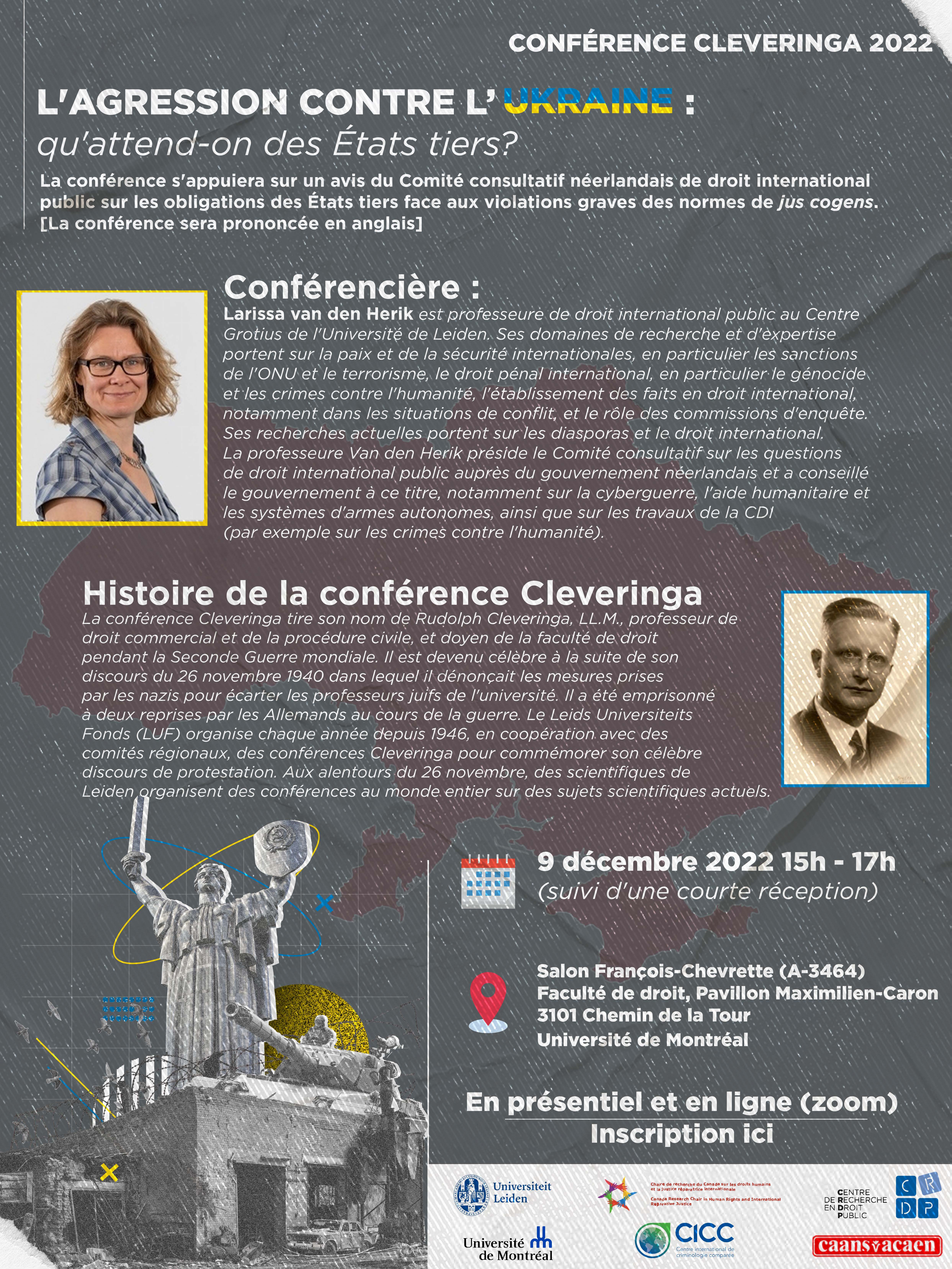The aggression against Ukraine: what is expected of bystanders?

With the Cleveringa Lectures 2022, the CRDP and the CICC offered the University of Montreal a new commemoration of the famous protest speech delivered by Professor Rudolph Cleveringa on 26 November 1940.
As part of these sessions, on 9 December 2022, Larissa van den Herik, Professor of Public International Law at the Grotius Centre of the University of Leiden, gave a lecture on the following question: "The Aggression against Ukraine: what is expected from third states?
In answering this question, the lecturer drew on an opinion issued by the Dutch Advisory Committee on Public International Law, of which she is the chair, on the obligations of third states in the face of serious violations of jus cogens norms.
In her presentation, Professor van den Herik emphasised the need for third states to work together in order to provide a satisfactory response to Russia's aggression against Ukraine, as identified by the Dutch Advisory Committee on Public International Law. It is particularly in relation to the meaning of the rules of international law that states need to be clear. It is legitimate to question the standards used by third states to condemn and punish. Without a formal meaning given to this law, unequal treatment between countries is to be deplored. Indeed, Northern countries often speak out against Southern countries, while remaining ambiguous about Russia's actions.
All too often, states are reluctant to speak out for fear that the interpretation of the law will one day be used without their knowledge. In order to remain credible, States must also be subject to the Law, which will apply to them in the event of abuse. Consequently, the legitimacy of third States to dispense sanctions depends on their ability to explain and clarify their legal positions, while being able to assume their responsibilities.
Also in the spirit of collaboration, it would be necessary for states to rely on international institutions to determine the violation of an international norm. Similarly, states should jointly consider the consequences of imposing sanctions. Together, they should address the question of the proportionality of punishments. How far would they decide to go? Collaborative reflection on the possible consequences, both for the states targeted by these sanctions and for their citizens who would inevitably be affected, must be an integral part of the debate.
Consequently, third states have a duty to cooperate in order to first reflect on the expression of such punishments in international law, and then to regulate these future sanctions, specifying in concrete terms the framework in which they can be imposed. A first alliance between the Netherlands and Canada could mark the beginning of this collaboration.
Cleveringa Lectures
The Cleveringa Lecture derives its name from Rudolph Cleveringa, LL.M., Professor of Commercial Law and Civil Procedural Law, and Dean of the Faculty of Law during the Second World War. He acquired fame as a consequence of his speech on 26 November 1940 in which he denounced the measures taken by the Nazis to remove Jewish professors from the University. He was twice imprisoned by the Germans during the course of the war.
The Leids Universiteits Fonds (LUF) organizes Cleveringa Lectures annually since 1946 in cooperation with regional committees to commemorate his famous protest speech. Leiden scientists worldwide hold interesting lectures on current scientific topics around November 26th.
Professors Jo-Anne Wemmers and Miriam Cohen are delighted to have co-organised this conference with Professor Larissa van den Herik.
This content has been updated on 3 February 2023 at 15 h 12 min.
Comments